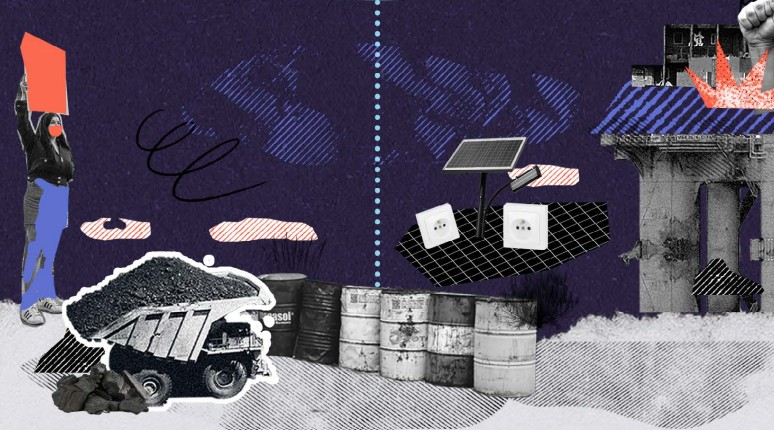The revolution of 2011 in Tunisia overthrew the government, coined the term ‘Arab Spring’ and spread revolutionary sentiment across borders. Another, perhaps less obviously dramatic, consequence of the Tunisian revolution has been the increase and strengthening of civil society organisations in the country. Prior to January 2011, CSOs were namely composed of organisations that acted as instruments in the hands of the national government, and therefore were hardly in tune with the reality of societal problems. After the revolution, associations focused their interest on different areas, especially that of human rights and good governance across sectors which had been neglected under the former regime.
CSOs, including associations, workers’ and employers’ unions, charitable organisations and other grassroots initiatives involving citizens became involved in the national debate that followed the 2011 revolution. An important question in this national debate was that of natural resources, and several CSOs began lobbying for more transparency in the extractive sector. A group of organisations, namely led by ATTEM ( Association Tunisienne de Transparence dans l’Energie et les Mines) successfully reached out to the Prime Minister Jebali in 2012 and encouraged him to announce in June of that year the Tunisian government’s intention to implement the Extractive Industries Transparency Initiative (EITI). Further progress on natural resource management was made with the adoption of Tunisia’s new constitution that included several provisions on transparency in the extractive sector.
Indeed, strong mobilisation by civil society led to the successful lobbying of the head of the energy committee at the NCA, Mr. Chafic Zurguine. During one workshop organised by ATTEM in January 2014, two weeks prior to the approval of the new Tunisian reformed constitution, civil society organisations represented by around 25 participants met with Mr. Zurguine and discussed the importance of including articles that heavily support the good governance of natural resources. On January 26th, the Tunisian reformed constitution was adopted hence securing the passage of several constitutional articles that ensured that the state “strives for proper management of natural resources.” (Article 12), underscores that “natural resources belong to the Tunisian people.” (Article 13), stipulates that natural resource contracts need to be ratified by the NCA. Article 136 also allows for the possibility of allocating a percentage of natural resources to advancing regional development and regional management of resources.
In its present form, the constitution introduces a number of transparency and accountability provisions absent from previous versions; these include the state’s commitments to anti-corruption (Article 10), sustainable development and regional equity (Articles 12 and 129), impartiality and accountability in public administration (Article 15), and also citizens’ right to information (Article 32).
Yet, while this progress is encouraging, fewer advances have been made regarding EITI. As a way to keep government pressure up, Tunisian civil society groups expressed a desire to start a network or a coalition through which they could unify their efforts and become an effective constituency playing a key role in the governance of their natural resources. They therefore formed, during the ATTEM January 2014 workshop, a nascent network that included 15 different Tunisian civil society groups By Mid 2014, this nascent network had decided that in order for them to function properly and act upon an advocacy based coalition action plan, they required assistance. They therefore approached PWYP and NRGI for help in transforming this budding network into a full- fledged coalition with a governance structure aligned to Publish What You Pay’s and an advocacy based action plan that reflects the coalition’s strategic priorities.
On December 5th and 6th, 2014, PWYP’s International Secretariat carried out its first workshop, which included 19 representatives from Tunisian civil society groups. Groups from the extractive areas of Kairawan, Gabes, Gafsa and Tataween participated, along with ones from the capital, in setting the strategic priorities of the nascent coalition as well as discussing the overall governance structure to be adopted. The strategic priorities include adoption of the EITI by the government, raising awareness amongst civil society of the importance of the EITI, reforming current laws so that they harmonise with the constintution pertaining to the good governance of the EI sector in Tunisia, as well as supporting the OGP process in Tunisia.
As the Arab Spring in other parts of the region turn into winters of discontent, the world looks to Tunisia for some good news. Hopefully, Tunisia can prove to be a successful post-revolution model with government and citizens working together towards a better management of their natural resources.











